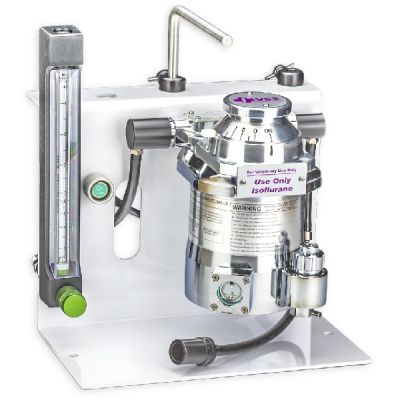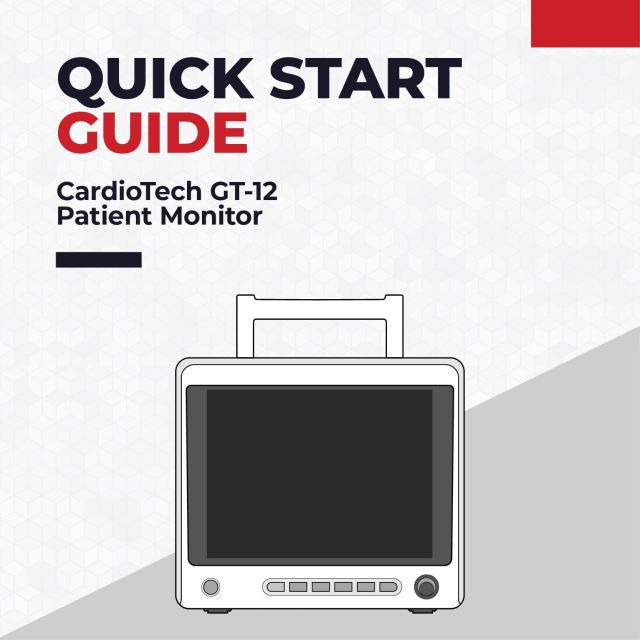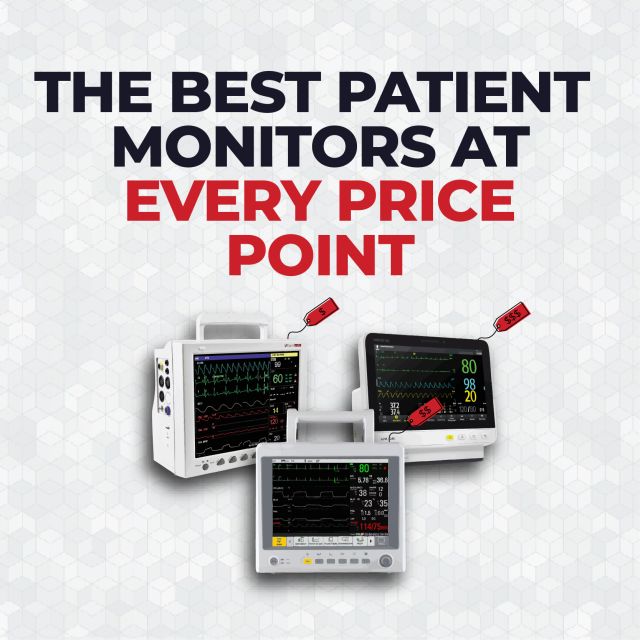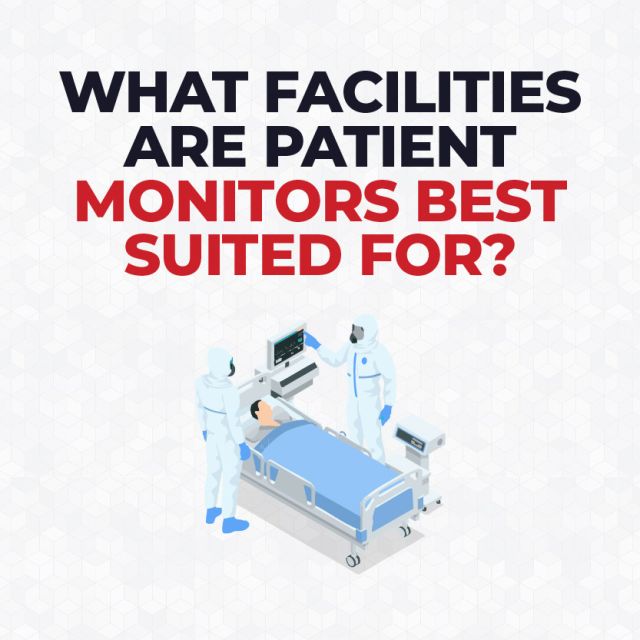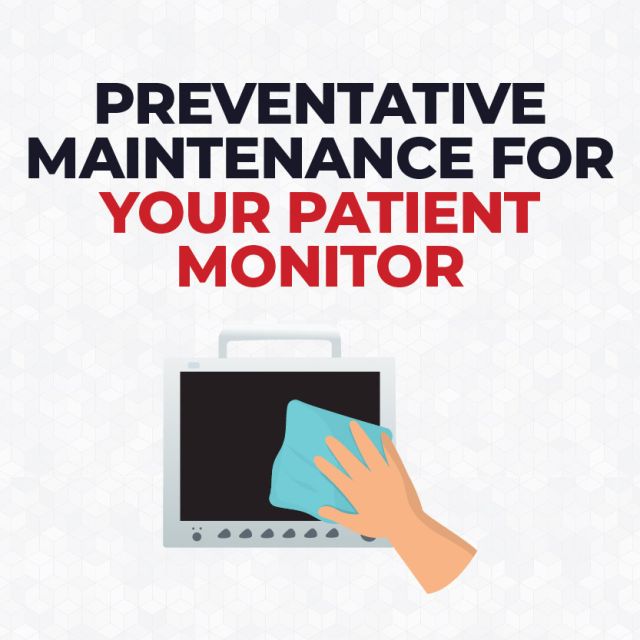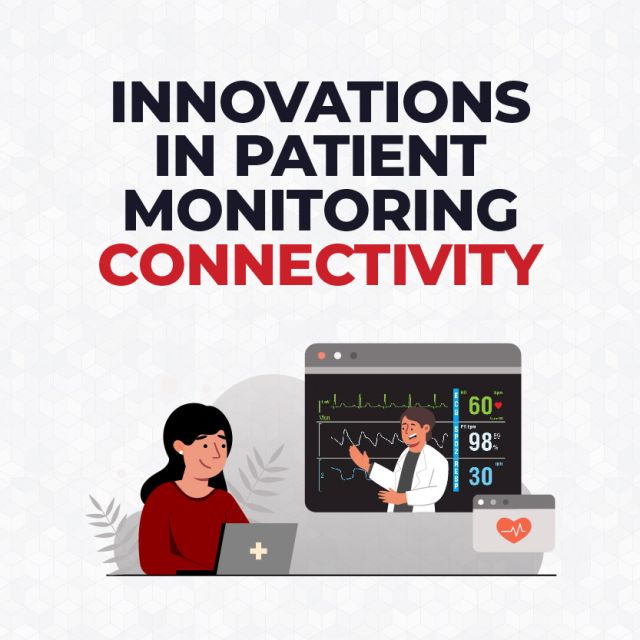How do Anesthesia Machines Work?
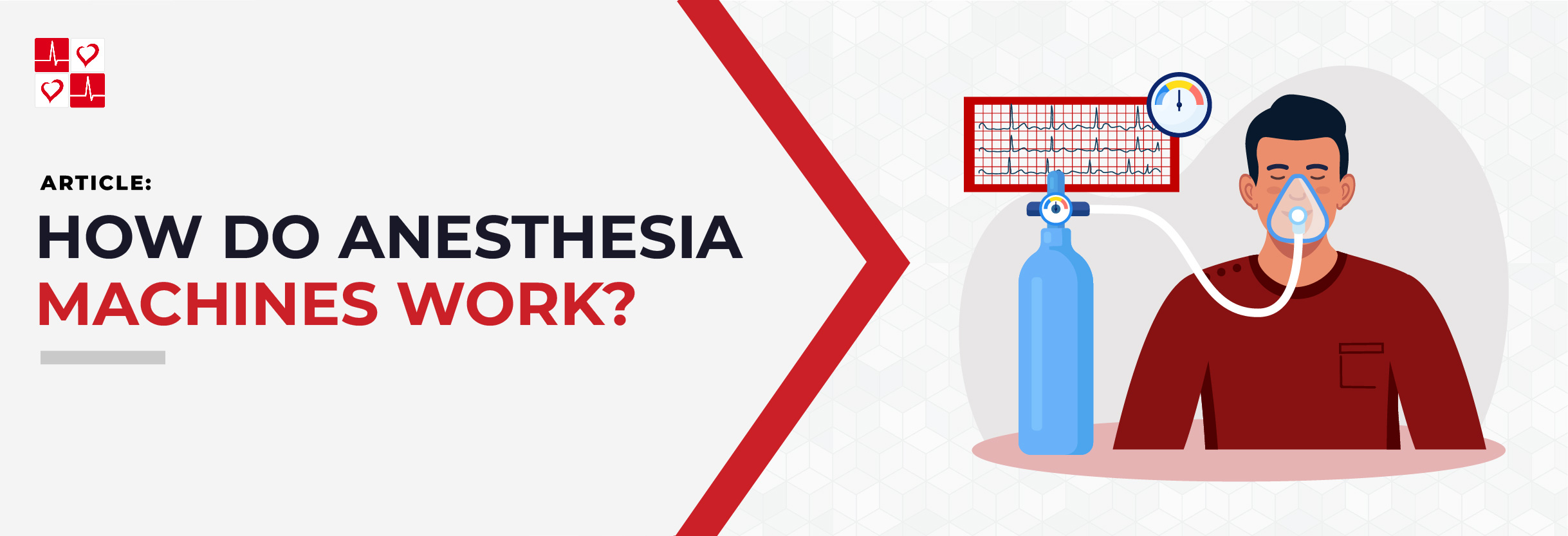
What is an Anesthesia Machine?
An anesthesia machine is a pneumatic device that delivers a precise amount of gas and anesthetic agents to patients during surgical procedures to maintain unconsciousness and manage pain. The primary goal of anesthesia machines are to ensure patient safety and effective anesthesia management throughout the surgery.
Parts of an Anesthesia Machine
Anesthesia Machines are primarily made up of a ventilator, a type of breathing circuit, scavenging system and an array of safety features.
Ventilator
A ventilator delivers controlled breaths to a patient during surgery. It ensures that the patient receives a consistent supply of oxygen and anesthetic gasses, maintaining adequate ventilation when the patient is unable to breathe independently. The ventilator can adjust the volume, pressure, and rate of breaths, providing precise respiratory support tailored to the patient’s needs. This is crucial for ensuring effective anesthesia management throughout the procedure.
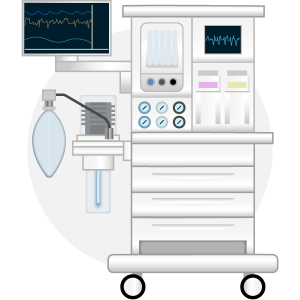
Breathing Circuits
- Rebreathing Circuits: Rebreathing Circuits reuse exhaled gasses after removing CO2, typically through a soda lime absorber.
- Non-Rebreathing Circuits: In Non-Rebreathing Circuits, exhaled gasses are not reused and are expelled out, requiring high fresh gas flow rates to prevent CO2 rebreathing.
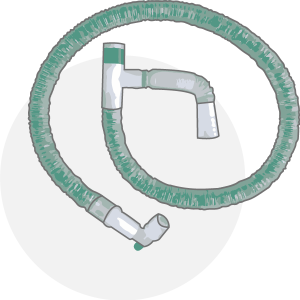
Scavenging System
A scavenging system is designed to safely remove excess anesthetic gasses from the operating room, preventing exposure to healthcare personnel. This system captures gasses exhaled by the patient or released from the machine and directs them to a gas disposal system. The system typically includes a gas collection assembly, transfer tubing, a scavenging interface, and an evacuation system.
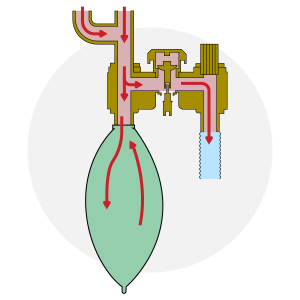
Safety Features
Safety features of anesthesia machines may include:
- Safety Pop Off Valve: SPOV’s have an internal pressure release mechanism that allows users to temporarily close the valve to prevents pressure from building up in patients’ lungs.
- Oxygen Concentrators: Oxygen concentrators produce medical grade oxygen that delivers to the patient instantly, compared to compress oxygen cylinders.
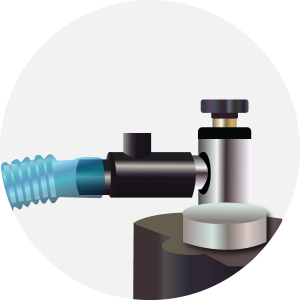
How does an Anesthesia Machine Work?
Our Anesthesia Machine Recommendations
Supera M1200 Mobile Veterinary Anesthesia Machine
The Supera M1200 Mobile Veterinary Anesthesia Machine boasts an advanced anesthesia delivery system that seamlessly merges precision and versatility. The Supera M1200 features an intuitive user interface, featuring a high-resolution touchscreen that provides instant access to critical data and controls. The M1200 comes equipped with ample storage space for necessary supplies and accessories, ensuring that healthcare providers have everything they need at their fingertips.
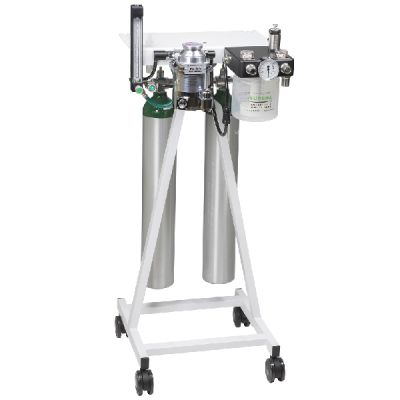
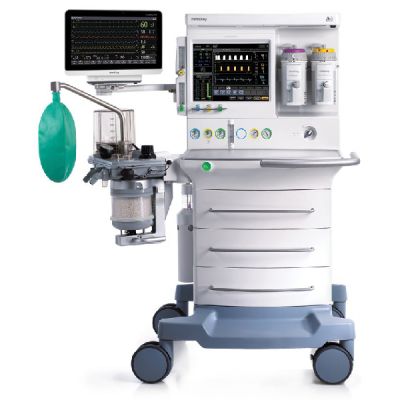
Mindray A4 Advantage Advanced Anesthesia Machine
The Mindray A4 Advantage Anesthesia Machine is a flexible delivery solution with an adaptive design for effective patient care across a wide range of healthcare facilities. The A4’s workflow is enhanced with the intuitive, touch screen user interface, built-in safety features, ample storage and workspace, and accessory mounting options in an award-winning, ergonomic design. The configurable A4 compliments anesthesia practices in mid-acuity hospitals and ASC’s in a comprehensive and cost-effective system.
Supera M3000 Table Top Non-Rebreathing Veterinary Anesthesia Machine
The Supera M3000 Non-Rebreathing Table Top Veterinary Anesthesia Machine embodies the fusion of cutting-edge technology, ergonomic design, and patient safety. This anesthesia machine is extremely compact and widely used for rodents and other small animals of up to 15 lbs. While this compact machine is light enough to carry between treatment areas, it offers excellent safety for your patients and convenience.
